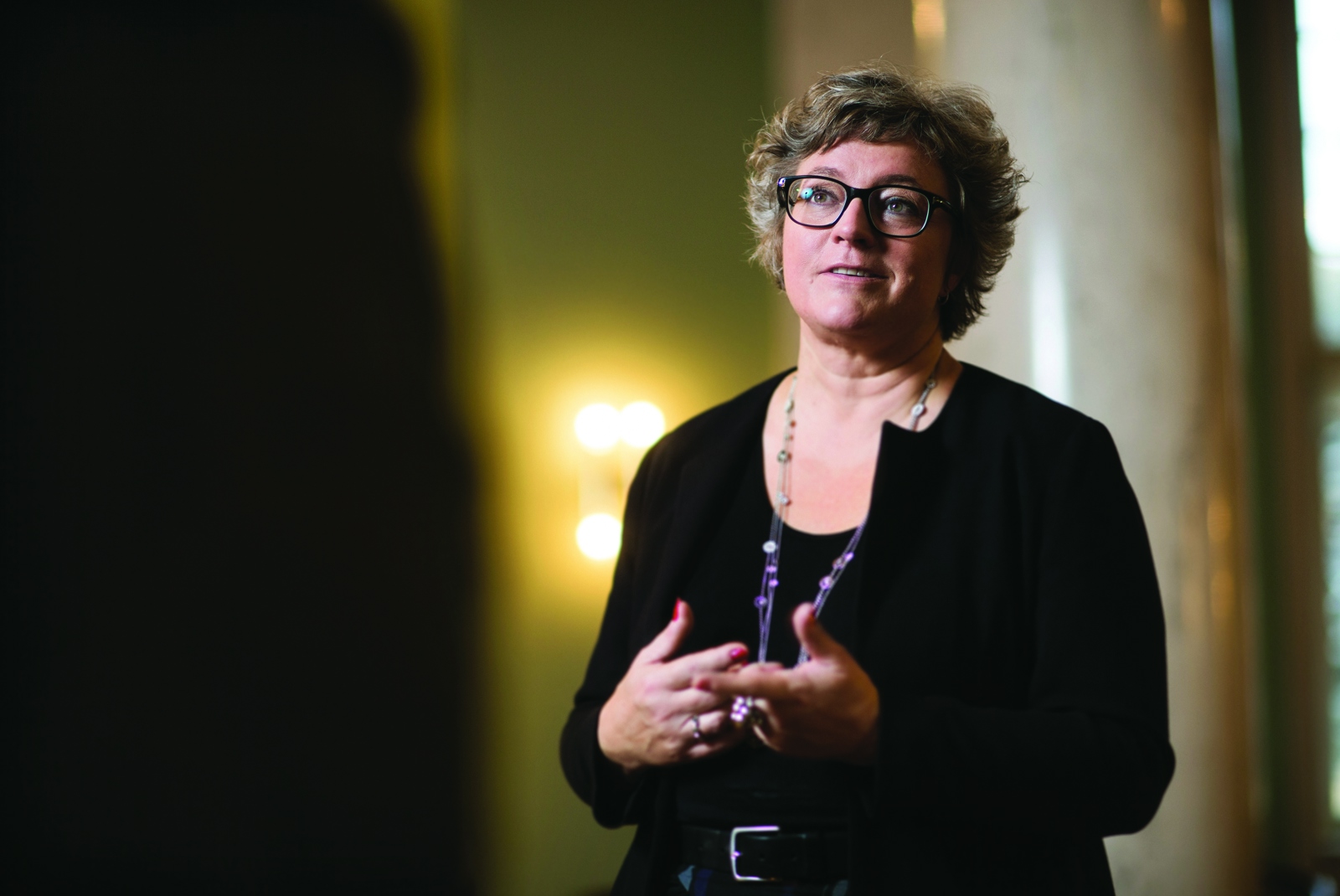The full picture is one with more silver linings than cloud. There are reasons to be confident, reasons to be proud and reasons to look forward to the future with optimism. Global development is on-going, and shipping remains a key driver of positive change.
“Danish ships picked up 1100 refugees in the Mediterranean only last week,” reports Anne H. Steffensen, CEO of the Danish Shipowners’ Association, illustrating both the plight of a desperate population, and the effect of a world in turmoil on her member companies. “Instability in the world is having a huge impact on Danish shipping.” “We don’t know how the traditional axis of development will evolve,” she states. “The economic situation in Europe is still uncertain, the US is looking stronger but growth is not creating more good jobs, and China’s economy is slowing down and becoming more internalised. The changes in China are of particular concern for us, simply because of the large volume of business that our members do there.” Add to this picture unrest in the Middle East and Northern Africa and unsettling behavior from Russia, and you are looking at a future difficult to predict with any certainty. Climate and the environment are also on the list of concerns. “The shipping industry has an obligation to make a difference. We need to have the smallest negative footprint possible, and that means finding ways to become more energy efficient.”
REASON TO BELIEVE
Yet in this challenging scenario, Anne H. Steffensen finds reason for optimism, starting with the climate contribution that shipping is making. “The Danish fleet has reduced its CO2 emissions by 40% since 2008,” she reports. “Now A.P. Møller Maersk has set a goal of 60% reduction by 2020 compared to 2007. These are ambitious goals, but we have the technology and the knowledge to reach them.” Nor does today’s gloomy economic picture dampen her faith in a better future. While the optimism surrounding the BRIC countries is fading, Steffensen spies one bright spot.
“Brazil, Russia and China are all facing slowdowns, but India seems to be on the right track. Foreign investors’ confidence is being rewarded and foreign trade is opening up. India has a very young population and they have a strong educational system. Their economy is also diversified, more so than China, and they are making key investments in their infrastructure.” Developments in Africa also give reason for hope. “Africa has good growth potential. Many countries are becoming more integrated into world economy. Nigeria, Kenya, Ghana and Tanzania all have resources and infrastructure to support growth. Even if you start small, 5, 6 or 7 per cent growth is significant, and it multiplies over time.” “The medium and long-term opportunities are out there,” she emphasises. “We just have to keep a positive outlook and be looking for the next opportunities for growth and development. Even if we only meet conservative estimates for growth, there will still be opportunities.”
STRONGER TOGETHER
Among the concerns that shadow Steffensen’s optimism is the fragmentation of international regulations governing the shipping industry. The weakened state of the UN is evident in the current situation in the Mediterranean. Inertia in the World
Trade Organisation and other large regulators is also cause for serious concern in the shipping industry. “Thankfully we still have a strong International Maritime Organization in the UN, working to keep a level playing field in the shipping industry.”
Where global corroboration is lacking, Steffensen reckons regional agreements like the Trans-Atlantic Trade and Investment Partnership (TTIP) are the next best thing. “It’s important for Europe and the US to agree on a single set of standards. Fragmented standards are devastating for our industry. We have our work cut out for us to achieve comprehensive global regulations and organisations to enforce them.”
LIGHT IN THE DARKNESS
“I am a born optimist. But I honestly believe there are good. But I honestly believe there are goodreasons for optimism today. First of all, there are clear signs in the economy that there are countries and industries on their way up. Secondly, our own industry has always been able to weather crises. Our competence has gotten us through tough times before, and it is the key to being optimistic for the future,” Anne H. Steffensen maintains. “But the real winners over the past 20 years are the poorest people in the poorest countries who have made their way out of poverty and gained a place in the global economy,” she concludes. “We have seen it happen in Asia, and we see it coming in Africa. Again shipping has played a significant part in this development and has to remain ready to tap into the opportunities that changing trade routes will bring. By structuring our business to support global development, we can contribute to lifting more people out of poverty, and that is a great thing to work for.”
